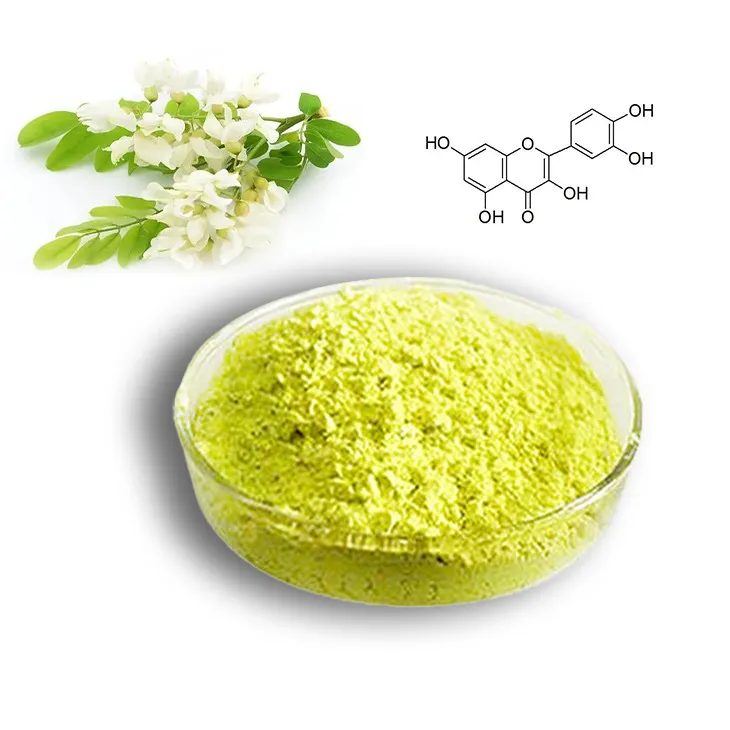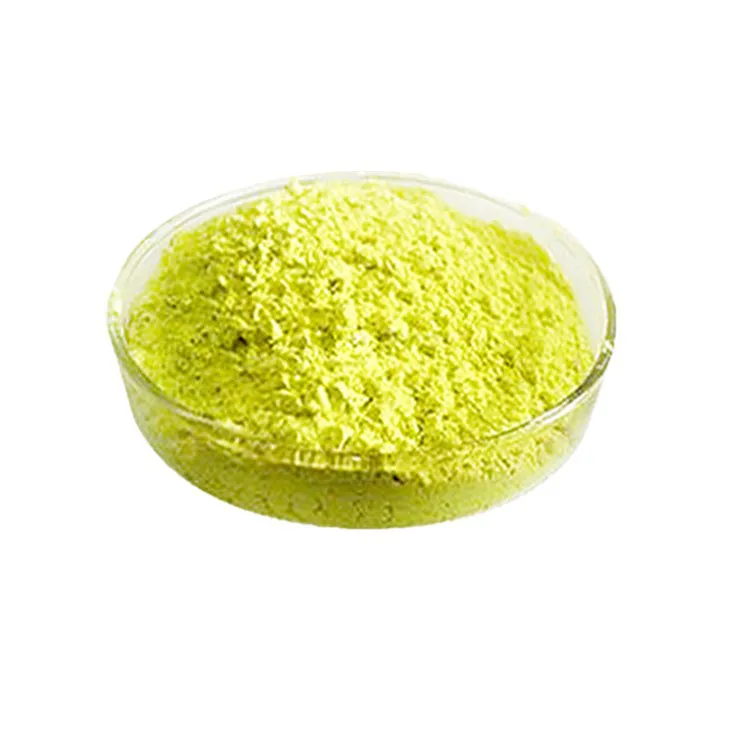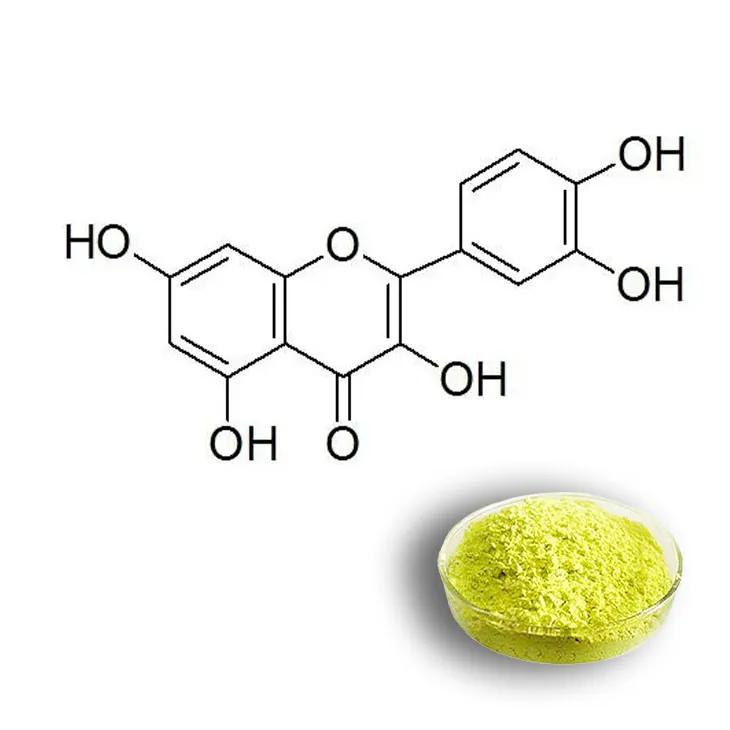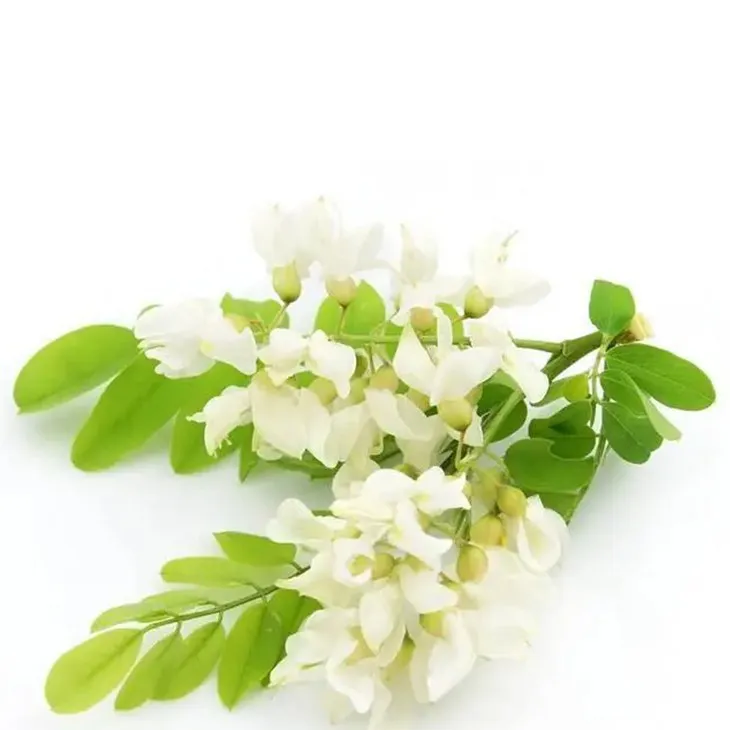- 0086-571-85302990
- sales@greenskybio.com
Quercetin: The Hero Ingredient Your Skin Needs Without You Knowing.
2024-11-13

Introduction
In the world of skincare, there are countless ingredients vying for our attention. However, one ingredient that has been somewhat overlooked but is truly a hero for the skin is Quercetin. This natural compound, found in various fruits, vegetables, and plants, holds a plethora of benefits for our skin that are only now starting to be fully understood.

What is Quercetin?
Quercetin is a flavonoid, a type of plant - based antioxidant. It is abundant in foods such as apples, onions, and berries. Flavonoids like quercetin play important roles in plants, helping them to protect against environmental stressors. When it comes to skincare, its antioxidant properties are what make it so valuable.

Antioxidant Power
Protection Against Environmental Damage
Our skin is constantly exposed to environmental aggressors such as UV radiation, pollution, and free radicals. These can cause oxidative stress, which leads to premature aging, wrinkles, and a dull complexion. Quercetin, with its antioxidant prowess, can neutralize these free radicals before they have a chance to cause damage. It acts as a shield, protecting the skin cells from the harmful effects of the environment. For example, when we are exposed to UV rays, quercetin can help to prevent the breakdown of collagen and elastin fibers, which are crucial for maintaining the skin's firmness and elasticity.
Anti - Inflammatory Effects
In addition to its antioxidant capabilities, quercetin also has anti - inflammatory properties. Inflammation in the skin can be caused by a variety of factors, including allergies, irritants, and even internal health issues. Chronic inflammation can lead to skin conditions such as acne, eczema, and psoriasis. Quercetin can help to reduce this inflammation, soothing the skin and calming redness and irritation. It does this by inhibiting certain enzymes and signaling molecules involved in the inflammatory response.

Benefits for Collagen Production
Collagen is often referred to as the "building block" of the skin. It provides structure and support, keeping our skin looking youthful and plump. As we age, collagen production naturally declines, leading to the formation of wrinkles and sagging skin. Quercetin has been shown to stimulate collagen production. It does this by interacting with the fibroblasts in the skin, which are the cells responsible for producing collagen. By promoting collagen synthesis, quercetin can help to improve the skin's texture and firmness, reducing the appearance of fine lines and wrinkles.

Improvement of Skin Tone
Uneven skin tone is a common concern for many people. Whether it's due to hyperpigmentation, sun damage, or hormonal changes, having a blotchy complexion can be a source of self - consciousness. Quercetin can play a role in improving skin tone. It inhibits the production of melanin, the pigment responsible for skin color. By reducing melanin production, it can help to fade dark spots and even out the skin tone, giving the skin a more radiant and uniform appearance.
How to Incorporate Quercetin into Your Skincare Routine
Topical Applications
There are now many skincare products on the market that contain quercetin. These include serums, creams, and masks. When choosing a topical product, look for ones that list quercetin high on the ingredient list. Apply these products to clean, dry skin, following the instructions provided. For example, a quercetin - rich serum can be applied in the morning and evening before moisturizer for maximum benefits.
Dietary Sources
- Apples: One of the most common sources of quercetin. Eating an apple a day not only keeps the doctor away but can also be beneficial for your skin.
- Onions: While they may not be the most glamorous food, onions are rich in quercetin. Incorporating them into your diet, whether raw in salads or cooked in dishes, can provide your skin with this valuable nutrient.
- Berries: Strawberries, blueberries, and raspberries are all excellent sources of quercetin. They are also delicious and can be easily added to your diet, whether eaten on their own, in smoothies, or as part of a dessert.
Conclusion
Quercetin is truly a hero ingredient that our skin needs. Its antioxidant, anti - inflammatory, collagen - promoting, and skin - tone - improving properties make it a valuable addition to any skincare routine. Whether through topical applications or dietary intake, we can all benefit from the power of quercetin. As more research is conducted on this amazing compound, we can expect to see even more innovative skincare products and dietary recommendations centered around it in the future.
FAQ:
What is quercetin?
Quercetin is a flavonoid, which is a type of natural compound found in many plants. It is known for its antioxidant properties.
How does quercetin protect the skin from environmental damage?
Quercetin is an antioxidant, which means it can neutralize free radicals. Free radicals are unstable molecules that can be caused by environmental factors such as pollution, UV radiation, and cigarette smoke. By neutralizing these free radicals, quercetin can help prevent damage to the skin cells.
Can quercetin really promote collagen production?
Yes, quercetin has been shown to promote collagen production. Collagen is a protein that is essential for maintaining the structure and elasticity of the skin. By promoting collagen production, quercetin can help keep the skin looking firm and youthful.
How does quercetin improve skin tone?
Quercetin can improve skin tone in several ways. It can help reduce inflammation, which can lead to a more even skin tone. It can also help with the production of melanin, the pigment that gives skin its color, which can result in a more balanced skin tone.
How can I incorporate quercetin into my skincare routine?
Quercetin can be found in many skincare products, such as serums, creams, and masks. You can also get quercetin through your diet by eating foods that are rich in it, such as apples, onions, and berries.
Related literature
- The Role of Quercetin in Skin Health and Disease"
- "Quercetin: A Promising Ingredient for Skincare"
- "Antioxidant Properties of Quercetin in Skin Protection"
- ▶ Hesperidin
- ▶ Citrus Bioflavonoids
- ▶ Plant Extract
- ▶ lycopene
- ▶ Diosmin
- ▶ Grape seed extract
- ▶ Sea buckthorn Juice Powder
- ▶ Fruit Juice Powder
- ▶ Hops Extract
- ▶ Artichoke Extract
- ▶ Mushroom extract
- ▶ Astaxanthin
- ▶ Green Tea Extract
- ▶ Curcumin
- ▶ Horse Chestnut Extract
- ▶ Other Product
- ▶ Boswellia Serrata Extract
- ▶ Resveratrol
- ▶ Marigold Extract
- ▶ Grape Leaf Extract
- ▶ New Product
- ▶ Aminolevulinic acid
- ▶ Cranberry Extract
- ▶ Red Yeast Rice
- ▶ Red Wine Extract
-
Medicinal Marshmallow Extract
2024-11-13
-
Chaste Berry Extract
2024-11-13
-
Centella Asiatica Extract
2024-11-13
-
Tormentil Extract
2024-11-13
-
Beetroot Powder
2024-11-13
-
Resveratrol extract
2024-11-13
-
Alisma Extract
2024-11-13
-
Polygonum multiflorum extract
2024-11-13
-
Mulberry leaf Extract
2024-11-13
-
Yohimbine Bark Extract
2024-11-13





















